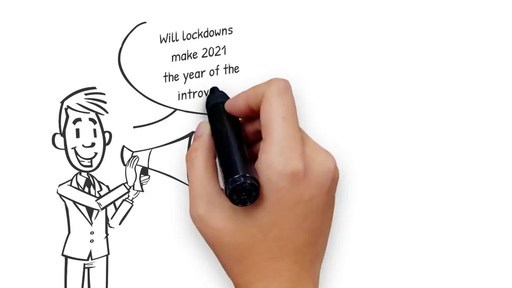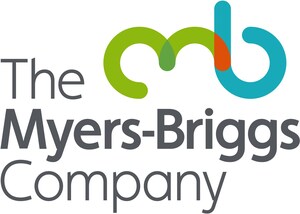The State of Introversion: Will Lockdowns Make 2021 the Year of the Introvert?
Research-backed Advice in Three Critical Areas for World Introvert Day
SUNNYVALE, Calif., Dec. 30, 2020 /PRNewswire/ -- With World Introvert Day on Jan. 2, many ask: do lockdowns and remote work favor introverted types? Yes...and no, say experts at The Myers-Briggs Company, who've been studying COVID-19's effects on people's well-being. The company is exploring the state of Introversion based on several reports and offering advice in three critical areas.
Online collaboration and 'shelter-in-place' offer Introverts benefits and pitfalls
We meet a significant proportion of our interpersonal needs through work. Online collaboration tools help employees mitigate lack of in-person interaction during lockdowns, but different personality types experience these tools differently. Those who prefer Extraversion may see an impromptu video call as energizing and a welcome break, while Introverts might view this as intrusive and draining.
Tip: Introverted types should set boundaries around use of online collaboration tools to keep from feeling drained.
Personality type also influences how 'shelter-in-place' affects people. In a recent survey:
- 83 percent of introverted types agreed or strongly agreed with "I enjoy the peace and quiet of working from home."
- Less than half agreed or strongly agreed with "I miss having people around me" (compared to 80 percent of Extraverts).
Lockdowns also have downsides for Introverts. The Myers-Briggs Company's Head of Thought Leadership John Hackston says, "while introverted types generally cope better with solitude, the danger is forgetting to spend time with others, which diminishes resilience to stress."
"Always On" work culture challenges Introverts
Before the COVID-19 virtual work migration, an 'Always On" culture study showed a third of respondents unable to switch off mentally and a fifth mentally exhausted. Additional research links work-home overlap to increased stress, decreased performance, and poorer health--impacts keenly felt by Introverts who usually prefer more space between work and home life.
Tip: As Hackston asserted in Harvard Business Review, introverted types should recharge by taking adequate reflection time and establishing quiet spots.
Introverts under-represented in leadership
While 56 percent of us prefer Introversion, only 39 percent of U.S. senior leaders do. This may be partially due to Extravert's tendencies to think out loud and talk more frequently, often interpreted as confidence.
Tip: Introverted types can demonstrate confidence in other ways, like expressing expertise through writing or 1-1 meetings.
Want to learn more? Check out the Unleashing the Power of Introversion webinar: https://bit.ly/powerofIntroversion.
About The Myers-Briggs Company
In our fast-changing world, your edge lies in harnessing 100 percent of your talent – at work, at home, and everywhere in between. The Myers-Briggs Company helps organizations worldwide improve teams, develop inspirational leaders, and solve the most perplexing people challenges. We empower individuals to be the best versions of themselves by enriching their understanding of themselves and others. As a Certified B Corporation, The Myers-Briggs Company is a force for good. And we're ready to help you succeed.
+1 800.624.1765 : themyersbriggs.com
Contact:
Michael Burke
[email protected]
415-989-9000
SOURCE The Myers-Briggs Company

Related Links
https://www.themyersbriggs.com
WANT YOUR COMPANY'S NEWS FEATURED ON PRNEWSWIRE.COM?
Newsrooms &
Influencers
Digital Media
Outlets
Journalists
Opted In




Share this article